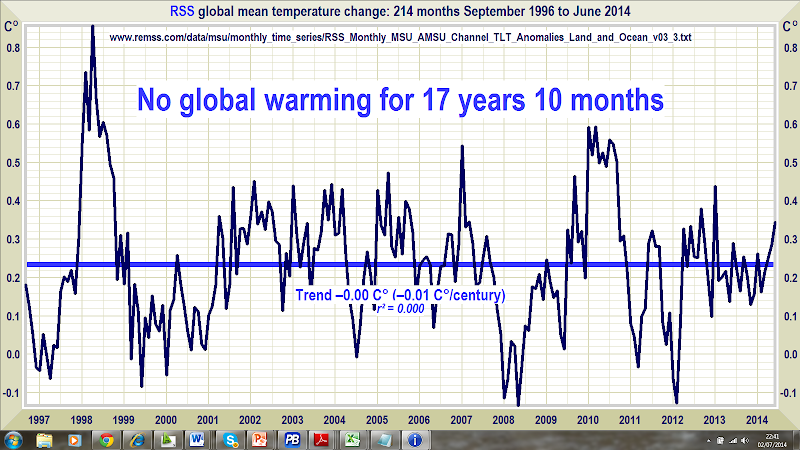The main reason why areas of rainforest are being cut down is to make way for cattle farms, more forest is lost to beef and dairy farming than all other reasons put together; it’s about 65% with most of the rest being lost to subsistence farming. Annually about 10 million hectares of rainforest are lost, an area roughly the size of Indiana.
Another major problem for the cattle industry is that cows are ruminants. Ruminants have a complex multi-stage digestive system and part of this process involves the microbial decomposition of the food they eat (especially grasses). This is a methanogenic process – i.e. it produces methane gas. Methane is 25 times as powerful as carbon dioxide when it comes to global warming (specifically it has a 100yr GWP of 25) and cattle produce a lot of methane.
A typical cow produces about 300 litres of methane per day. Contrary to popular belief, it’s not so much that cows pass methane as wind, but that they burp it out. Globally there’s about 1.3 billion domestic cattle. All told it means they produce the equivalent of 10 trillion litres of CO2 per day, or about 20 million tonnes of CO2.
- - - - - - -
EDIT: RE MAXX’S COMMENT
<< Are cows the only animals that produce methane? >>
No, many animals do through chemical and microbial reactions, mostly in the stomach and intestines. Ruminants produce huge quantities of methane, a cow for example produces 4,500 times as much methane as a human. Other farmed ruminants include sheep, goats, llamas, yaks and camels.
<< How many animals are there in the world besides farm animals? >>
Globally there’s very approximately treble the number of farm animals as there are humans, namely 7 billion humans therefore about 21 billion farm animals (this figure includes subsistence farms which far outnumber commercial farms).
Animalia is one of five kingdoms of organisms and by number represents a tiny fraction of all lifeforms on the planet. Because animalia includes the anthropod sub-group their numbers will total in excess of 10 quintillion.
<
Really? Please release your findings to the scientific community as it will turn the world of physics and the laws of quantum mechanics on their heads. What you mean is that there has been little warming in recent years and you assume this means that CO2 can’t cause warming. You assume that CO2 is the only thing that influences global temperatures – wrong, it’s one of thousands of things and you’re ignoring all of them.
<< and methane is a MUCH smaller trace gas, this is much ado about nothing.>>
Excluding water vapour (because it’s variable) then CO2 accounts for 99.4% of atmospheric greenhouse gases by volume, methane accounts for 0.5%. Respectively they are 401,000 parts per billion by volume and 1810ppbv. The 100 year global warming potential of CH4 is 25, this is measured against a fixed value of 1.000 for CO2. The total contribution to warming (again, excluding H2O) is 72.3% from CO2 and 7.9% from CH4. The other main contributors are nitrous oxide at 18.4%, dichlorodifluoromethane at 0.9% and 0.5% from all the other gases.
Cattle produce about 700 million tonnes of CO2 equivalence per year through burping and farting. Add to this the 3.5 billion tonnes of emissions caused by clear-felling forests to make way for cattle ranches and the total contribution from cattle is 4.2 billion tonnes of CO2 equivalence, or 8.7% of total anthropogenic emissions. Other livestock add a further 2.0 billion tonnes, agriculture and non animal related farming contributes a further 2.8 billion tonnes.
NO. More than 75 million bison once roamed the American continent, much more than the cattle that are raised now, however some of the animal farming methods are not good, free range cattle where the animal waste is returned to the land is good and sustainable, but some of the factory farming methods are not good, not good for the animals, not good for us who eat the meat (it is full of hormones and chemicals, omega 6 fats) it is only good for the factory owners wallet.
I have a beef with those who refuse to talk turkey to the pork barrel politicians who treat the environmentalist Chicken Littles as merely lambs to the slaughter.
Is this what they are teaching you in school now? Is this the beginning of the campaign against meat?
You know there has to be some man-made Global Warming BEFORE you can blame anything for causing it. And the fact is, it does not exist.
There is NO **man-made** Global Warming and there has never been any.
What global warming? It's been cooling for at least 12 years according to HadCrut3 & 4.
http://www.woodfortrees.org/plot/hadcrut...
According to RSS Satellite data there has been no warming for almost 18 year.

Sure - That's why we need to eat even more of these critters. Vegetarians need to be made into criminals for not doing their part to help reduce global warming.
it takes more land to feed animals than it would to just feed people.
"If anyone wants to save the planet, all they have to do is just stop eating meat. It's staggering when you think about it. Vegetarianism takes care of so many things in one shot: ecology, famine, cruelty.'- Paul McCartney
And your proof is where.